Peacebuilding traditionally depends on face-to-face meetings, but social distancing makes these difficult. Serena Clark (Maynooth University) and Claudio Alberti (swisspeace/Trinity College Dublin) look at what this means for the ‘localisation agenda’ and how the problems could be overcome.
Around a third of COVID-19 cases and fatalities are happening in places dealing with humanitarian or refugee crises, or those that are more vulnerable. Indirectly, the pandemic is likely to cause increased poverty, starvation, higher child mortality rates, lower life expectancy and less education. In September, humanitarian and peacekeeping officials at the United Nations (UN) warned that the consequences of the pandemic could erode peace and worsen conflicts around the world.
The limits of localisation during a pandemic
These challenges mean peacebuilding needs to adapt. What should peace initiatives look like now and after the pandemic? For example, in recent years, using localisation in humanitarian, development and peacebuilding interventions has been questioned. But the localisation agenda (or ‘local turn’) has been accelerating, and the pandemic has been a significant factor.
The peace processes in Sierra Leone are an example of an attempt at localisation, although their success is debated. Peacebuilding initiatives at the sub-national level are still rarely designed and implemented by local people. More often, external parties lead and develop these projects, and local organisations implement them. This dynamic creates a system where local people must rely on external parties to facilitate peacebuilding processes because they lack money and staff. A by-product of this is using the local agenda to encourage traditional liberal peacebuilding.
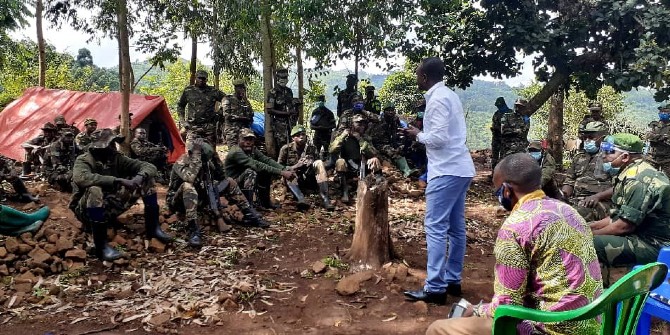
The COVID-19 pandemic has highlighted the limitations of this approach: communities have relied heavily on outside actors to carry out peacebuilding locally. And in many cases, instead of supporting and promoting sustainable peacebuilding, this cosmetic localisation perpetuates the cycle of dependency. Furthermore, the pandemic is causing disruptions and delays in interventions funded and implemented by international NGOs. Travel restrictions are affecting the rotation of uniformed and civilian personnel on the ground, and undermining initiatives working to facilitate platforms for dialogue, a crucial part of peacebuilding. In DRC and Mali, some borders have closed altogether.
The crisis therefore offers an opportunity to reflect on how to approach local peacebuilding in the future. Peacebuilding is about relationships and understanding how different social groups and communities interact. Dialogue and facilitation are essential to building these relationships, and COVID-19 restrictions are disrupting these processes. In order to transform relationships, mutual trust has to be established, and this is nurtured by prolonged periods of dialogue, usually in person. Social distancing and restricted travel mean some peacebuilding efforts are moving online.
Online peacebuilding: the pros and cons
The shift to an online peacebuilding platform forces us to consider issues like capacity, accessibility, the ability to build trust virtually, and the cultural appropriateness of a digital approach. It can reduce the environmental impact of peacebuilding, and early data suggest the decrease in domestic and international travel related to peacebuilding – if sustained – may benefit the environment.
At the same time, the use of remote solutions risks marginalising groups who are already disadvantaged. Peacebuilding initiatives, especially at the local level, often take place in isolated areas with limited or no access to phone and/or internet networks. Where networks are available, the cost of using them may be prohibitive. This results in an increased focus on mid-level peacebuilding interventions, and sub-national peacebuilding processes. already not a priority, are further neglected. This is problematic, because peacebuilding at the local level is key to achieving sustainable peace.
Though industrialised countries have been able to move meetings and events online relatively easily during COVID-19, this cannot happen extemporaneously in conflict and post-conflict settings. IT infrastructure may be lacking and participants can lack capacity or skills. These are costly and time-consuming to fix.
People may feel uncomfortable speaking openly or fear being recorded. Trust is also a factor. Those taking part in peacebuilding dialogue usually come from different groups that have limited or no interaction outside these platforms. They may even be parties still in conflict. Sharing a physical space for discussions and exchanges is an essential part of trust-building processes, and remote dialogue brings new challenges.
Nonetheless, the pandemic offers an opportunity to make a significant investment in local capacities, enabling peacebuilders to have genuine local ownership of peacebuilding processes. Here, a cultural shift is needed, and the responsibility of developing and implementing interventions should be given to local communities. External actors should focus on providing adequate technology and working with local actors to establish a clear exit strategy, avoiding leaving communities dependent on them.
New priorities for localisation
The localisation agenda should now have three priorities:
- With the economies of donor countries shrinking, there is a need for new adaptive funding schemes to foster local peacebuilding to adjust to new scenarios when budgets and programmes change
- Research on the impact of technology on peacebuilding outcomes is needed. For example, is online dialogue as effective as in-person?
- How can remote solutions best be implemented while promoting inclusivity?
This post represents the views of the authors and not those of the COVID-19 blog, nor LSE.


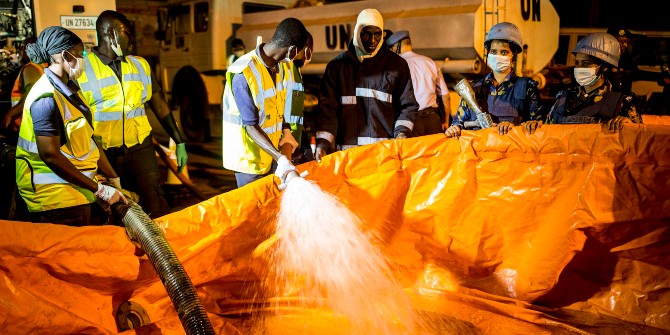
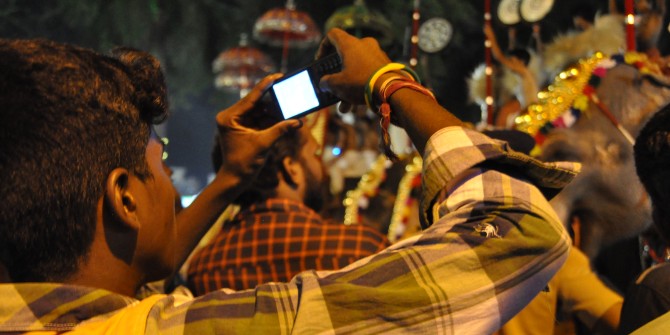
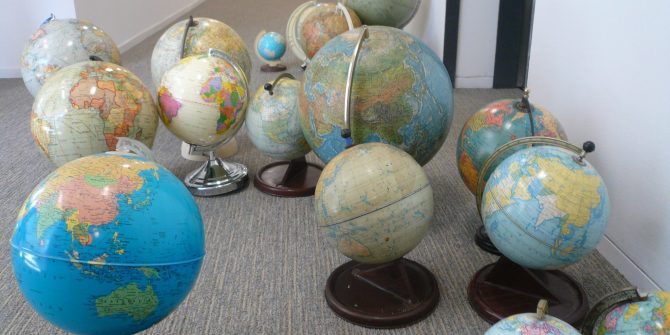
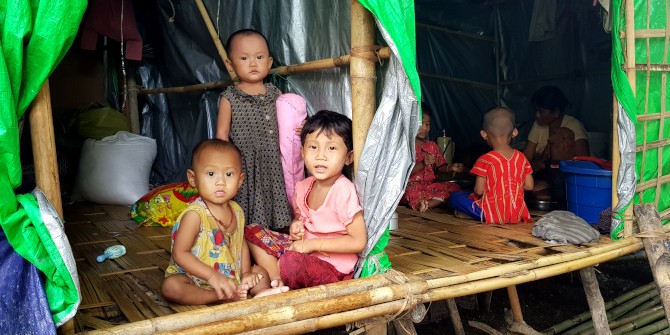
as a journalist and Human rights defender, working , reporting and collecting data of violations in very very conflicted areas Pakistan and Afghanistan border Tribal areas, i have mobilized and aware the tribal people regarding their rights, UDHR, peace building in local base.
i m the member of various National and International Networks, and have arranged many Sessions of Peace building, Human rights, Education etc in the area concern, which is very very challenging as there are uncertainty is still exist, i have faced many difficulties, armed groups threat me and attacked 2/tiem to stop peace building and human rights working inside Tribal area.
During Covid-19, we have also faced many issues as there is no Signals, Net Facilities and mostly health issues , no mask,senatizor and no ventilation , drugs facilities in the local dispensaries and hospitals.
our peace building programs badly effected by lock down and stopped in many villages, tehsils/districts.